
Tammy Abraham reveals Reece James wants him to return to Chelsea
Roma striker Tammy Abraham has reflected on his decision to leave Chelsea and discussed messages from former teammate Reece James.
1970-01-01 08:00

Fortnite Put Up 'Where's Miles' Posters: How to Complete
Fortnite players must travel to Shattered Slabs, MEGA City, Slappy Shores, and Brutal Bastion to put up 'Where's Miles' posters to earn 12,000 XP.
1970-01-01 08:00

Victor Wembanyama Looked Pumped to Avoid Houston Rockets
New video reveals his live reaction.
1970-01-01 08:00
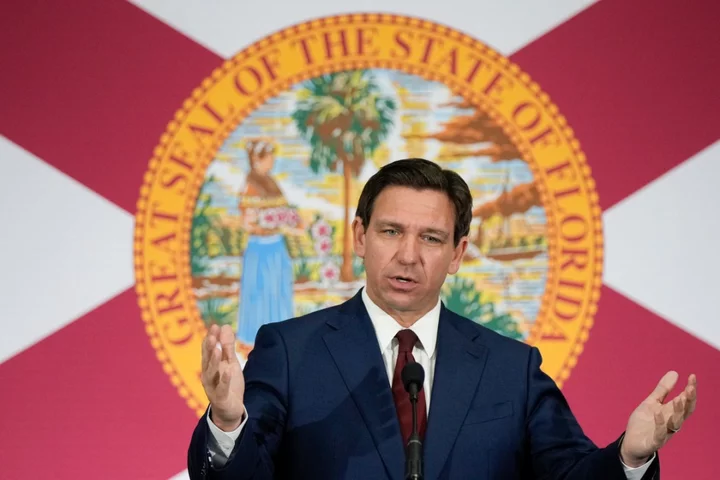
Are truckers really boycotting Florida over Gov DeSantis’ immigration policies?
In recent days, social media has been flooded with videos of truck drivers claiming they are boycotting Florida after the state’s governor, Ron DeSantis, signed into law a strict immigration enforcement bill. According to the social media posts, truckers across the United States had decided en masse to cease deliveries to the Sunshine State, citing the tough immigration policies. One TikToker who made a video about his own concerns about the law, sanchezmanuel33, told The Independent that he thought “thousands” of truckers were participating. However, it does not appear that such a mass demonstration has been taking place as of yet. The Florida Trucking Association, which lobbies on behalf of the state’s trucking industry at the Florida statehouse, was able to shed some light on the situation. The group’s president told The Independent that she was aware of the TikTok videos but as of yet was not noticing any impacts on trucking businesses operating in the state. “I’m aware of the reports, but have not heard of any issues,” Alix Miller said. Other news reports indicate that there were no shortages reported at grocery stores in the state as of yet. One immigrants’ rights advocate who spoke to a local Florida news outlet said that she had spoken to several local organisations about pulling together a possible boycott, but those plans had not materialised so far. A series of TikTok videos quickly spread across left-leaning accounts on Twitter, boasting of a looming boycott. One TikTok video of a man recording a line of empty store shelves at a grocery store was viewed hundreds of thousands of times as evidence of shortages supposedly cropping up in the state. Aiding the growing story was a series of TikToks from individual truckers making bold claims about how they themselves would participate in a boycott, circulated on Twitter by an independent journalist focused on the immigration beat. His thread has been viewed more than 3 million times. “Do not enter Florida. Let’s support immigrants. What they’re doing in Florida is not okay. I’m going to say it again, I won’t enter Florida and neither will my truck. Let’s not pretend like we’re not all immigrants here,” one driver said in Spanish on TikTok. “Look at all the truck drivers here, there are long long lines. If we stand together and say ‘F*** it, we are not going to Florida.’ Let’s see who is going to bring (goods) to Florida? ... There’s more being imported to Florida than being exported. If we don’t bring anything to Floridians, what are they going to do? What’s the governor going to do?” another driver added. Rep Alexandria Ocasio-Cortez also appeared to voice support for a trucker boycott. “Anti-immigrant policies reap what they sow. DeSantis’ Florida is about to find that out,” she said on Twitter, adding, “No más. Time to stop biting the hands that feed.” The issue has even received media coverage: A local newspaper, the Tallahassee Democrat, covered the TikToks and explained the basics of the immigration law, adding that “we don’t know for sure that (drivers) are” boycotting the state. A review of various Publix locations – Florida’s largest supermarket chain – across the state indicated no service disruptions or shortages, and there was no evidence on social media of any stores with empty shelves beyond the one TikTok filmed by a user named “PJ’s Journey”. The Independent has contacted a number of grocery chains in the state and made multiple attempts to reach Publix for comment. Read More Schoolboy almost dies from swallowing magnets for TikTok challenge Woman shares honest review of New York City apartment TikTok mom slammed after making 5-year-old son run in 104 degree heat Florida school district hit with lawsuit over ‘unconstitutional’ book bans Supreme Court refuses to block Illinois assault weapons ban Biden says he’s ‘confident’ US won’t default on debt
1970-01-01 08:00
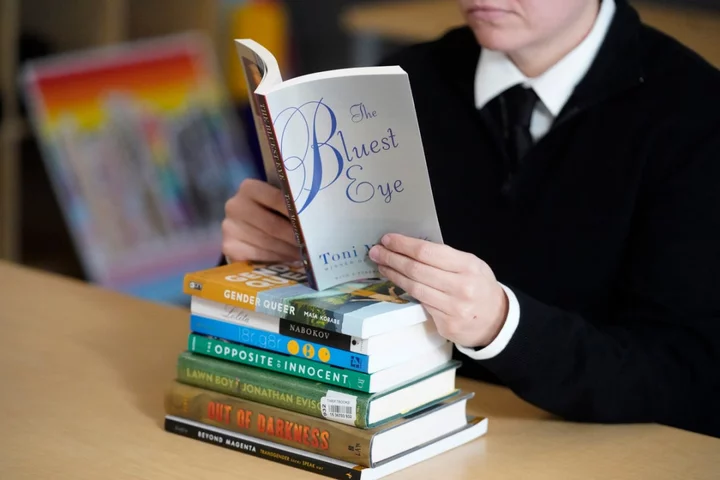
Penguin Random House sues Florida school district over ‘unconstitutional’ book bans
A school district and school board in Florida’s Escambia County were sued in federal court by free expression group PEN America and Penguin Random House, one of the largest book publishers in the world, and several prominent authors and families following dozens of challenges to books and materials discussing race, racism and LGBT+ people. The lawsuit filed in US District Court on 17 May argues that school officials have joined an “ideologically driven campaign to push certain ideas out of schools” and against the recommendation of experts. “This disregard for professional guidance underscores that the agendas underlying the removals are ideological and political, not pedagogical,” the lawsuit states. Florida Governor Ron DeSantis has ushered through sweeping laws to control public school education and lessons and speech he deems to be objectionable while characterising reporting on the impacts of such policies as a “hoax” and a “fake narrative” manufactured by the press. In Escambia County alone, nearly 200 books have been challenged, at least 10 books have been removed by the school board, five books were removed by district committees, and 139 books require parental permission, according to PEN America. Challenging such materials is “depriving students of access to a wide range of viewpoints, and depriving the authors of the removed and restricted books of the opportunity to engage with readers and disseminate their ideas to their intended audiences” in violation of the First Amendment, according to the lawsuit. The lawsuit also argues that singling out materials by and about nonwhite and LGBT+ people is an intentional violation of the Equal Protection Clause of the 14th Amendment “This is no accident,” according to the lawsuit. “The clear agenda behind the campaign to remove the books is to categorically remove all discussion of racial discrimination or [LGBT+] issues from public school libraries. Government action may not be premised on such discriminatory motivations.” Two Penguin Random House Titles – Toni Morrison’s The Bluest Eye and Push by Sapphire – have been removed. And several other Penguin titles – including Khaled Hosseini’s The Kite Runner and Kurt Vonnegut’s Slaughterhouse-Five – are currently under review. “Books have the capacity to change lives for the better, and students in particular deserve equitable access to a wide range of perspectives,” Penguin Random House CEO Nihar Malaviya said in a statement. “Censorship, in the form of book bans like those enacted by Escambia County, are a direct threat to democracy and our Constitutional rights.” Suzanne Nossel, CEO of PEN America, added that “children in a democracy must not be taught that books are dangerous.” “In Escambia County, state censors are spiriting books off shelves in a deliberate attempt to suppress diverse voices,” she added. “In a nation built on free speech, this cannot stand. The law demands that the Escambia County School District put removed or restricted books back on library shelves where they belong.” Titles from authors who joined the suit – including Sarah Brannen, David Levithan, George M Johnson, Ashley Hope Perez and Kyle Lukoff – have either been removed or faced restrictions for students to access them. “As a former public high school English teacher, I know firsthand how important libraries are,” Ashley Hope Perez, author of Out of Darkness, one of the books targeted by the school district, said in a statement. “For many young people, if a book isn’t in their school library, it might as well not exist.” The book removals followed objections from one language arts teacher in the county, and in each case the school board voted to remove the books despite recommendations from a district review committee that approved them. The teacher’s objections appear to be lifted from a website called Book Looks, founded by a member of Moms for Liberty, a right-wing group aligned with Governor DeSantis to pressure school boards and libraries to remove content it deems objectionable, largely around LGBT+ rights, race and discrimination. The basis for that teacher’s challenges “are nakedly ideological,” according to the lawsuit. In one instance, she admitted that she had never heard of the book The Perks of Being a Wallflower but included the title and a “parental book rating” and excerpts that appear to have been lifted from Book Looks. Her challenge to Race and Policing in Modern America, a nonfiction book for middle school readers, claims that the book promotes “the idea that all police are bad” and that “non-blacks are racist” and its purpose is to “race bait”. She did not include any specific examples of objectionable content, and “her sole objection was that the book addresses a topic – the intersection of race and policing – that she did not consider suitable for discussion in schools.” The Independent has requested comment from Escambia County school board members. The district is unable to comment on pending litigation. There have been at least 1,477 attempts to ban 874 individual book titles within the first half of the 2022-2023 school year, according to PEN America. The figures mark a nearly 30 per cent spike from book challenges over the previous year. Last year, a record high of more than 1,200 attempts to remove books from schools and libraries were reported to the American Library Association. More than 100 bills in state legislatures across the country this year threaten to cut library budgets, implement book rating systems, regulate the kinds of books and materials in their collections, and amend obscenity definitions that preempt First Amendment protections, according to a database from EveryLibrary. Read More The book ban surge gripping America’s schools and libraries The school librarian in the middle of Louisiana’s war on libraries ‘They were trying to erase us’: Inside a Texas town’s chilling effort to ban LGBT+ books John Green on book bans, bad faith, and the ‘history of folks trying to control what other folks can read’
1970-01-01 08:00

Steam Ditches Google Analytics Over Customer Privacy Concerns
Valve will stop using Google Analytics for Steam traffic reporting due to concerns over customer
1970-01-01 08:00

Sega Signals It'll Raise Game Prices to $70
Bad news for gamers: Sega may join the industry in raising its video game prices
1970-01-01 08:00
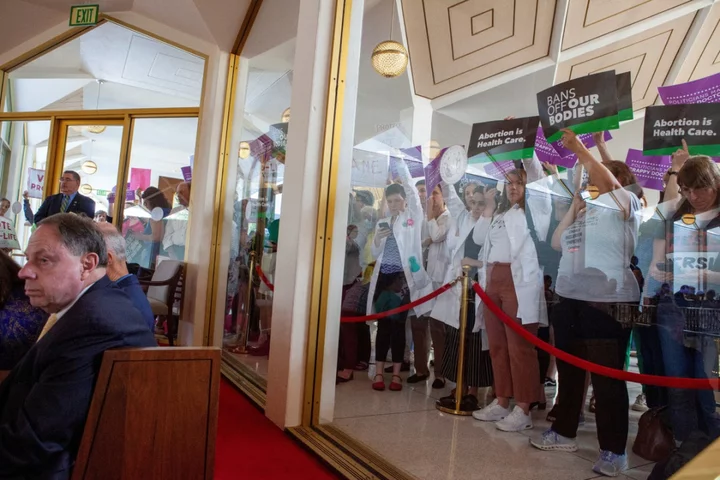
North Carolina Republicans approve 12-week abortion ban as sweeping restrictions spread across US South
Republican lawmakers in North Carolina voted to override the governor’s veto of a bill that outlaws abortion at 12 weeks of pregnancy, restricting abortion access in a state that has been a haven for abortion care in the year after the US Supreme Court’s decision to reverse Roe v Wade. In neighbouring South Carolina, lawmakers have continued debate before voting on a more-restrictive measure that would ban nearly all abortions after roughly six weeks of pregnancy, before many people know they are pregnant, adding to a streak of abortion restrictions across the US South. More than a dozen states, mostly in the South, have outlawed most abortions or severely restricted access within the year after the Supreme Court’s ruling in Dobbs v Jackson Women’s Health Organization, which revoked a constitutional right to abortion care that was affirmed for nearly half a century. Abortion rights restrictions in North Carolina and a six-week ban in South Carolina would dramatically change the map for abortion access in the US, where abortions are banned in most cases from Texas to West Virginia and along the Gulf Coast. “In the more than a dozen states with bans, women have been turned away from emergency rooms, left with no choice but to travel hundreds of miles for the care they need, and faced complications that put their lives and health at risk. Like those laws, the North Carolina ban will harm patients and threaten doctors for providing essential care,” White House press secretary Karine Jean-Pierre said in a statement on 17 May. She called the North Carolina measure a “dangerous bill that is out of touch with the majority of North Carolinians and will make it even more difficult for women to get the reproductive health care they need.” “We’ve already seen the devastating impacts that state abortion bans have had on the health and lives of Americans living under these draconian laws,” she added. Health workers joined protesters at the North Carolina Capitol in Raleigh on 17 May as lawmakers in the Republican-controlled state legislature convened to override a veto from Democratic Governor Roy Cooper, who has spent the last several days campaigning for GOP lawmakers to break from the party and drop the challenge to his veto. In a video posted online, the governor named four Republican lawmakers who he said made campaign promises to protect access to abortion. “They say this is a reasonable 12-week ban. It’s not,” he said in the video. “The fine print requirements and restrictions will shut down clinics and make abortion completely unavailable to many women at any time, causing desperation and death.” Much of the coverage surrounding the North Carolina legislation has centred around a now-Republican lawmaker who previously campaigned against abortion restrictions when she was a Democrat, up until April. State Rep Tricia Cotham joined the Republican Party last month after campaigning for her seat as a Democratic candidate and earning the endorsement of EMILY’s List, an influential abortion rights organisation. Her party switch delivered Republicans a veto-proof majority in the House. Ms Cotham has spent years campaigning against abortion restrictions, with powerful testimony about abortion rights and her own medically necessary abortion experience, saying in one widely shared 2015 speech that “my womb and my uterus is not up for your political grab.” In a statement following the vote, the governor said that “North Carolinians now understand that Republicans are unified in their assault on women’s reproductive freedom, and we are energized to fight back on this and other critical issues facing our state.” Lawmakers in the House and Senate voted on party lines to reverse the governor’s veto. The bill includes exceptions for pregnancies from rape or incest or if there is a “life-limiting anomaly” in the fetus. It also will require in-person physician visits at least 72 hours before a procedural abortion, and doctors must also make real-time views of fetuses available and allow patients to listen to embryonic cardiac activity. North Carolina lawmakers approved the anti-abortion law while lawmakers in Nebraska debated a measure that coupled a 10-week abortion ban with a bill targeting gender-affirming care for trans youth, a proposal that inspired a nearly three-month-long filibuster in an effort to block it. Republican lawmakers ultimately broke through the filibuster on Tuesday night and voted in favour of the combined bill, which will head to a final round of votes before it heads to the desk of Republican Governor Jim Pillen, who intends to sign it into law. Meanwhile, in Louisiana, lawmakers recently refused to add rape and incest exceptions to its anti-abortion law, one of the most restrictive in the country. State lawmakers also overwhelmingly rejected attempts to clarify medical exceptions in the law, including a measure that would specifically allow providers to remove an ectopic or molar pregnancy, which cannot result in a successful birth. Read More Nebraska Republicans approve combined gender-affirming care ban and anti-abortion bill after epic filibuster Anti-abortion laws harm patients facing dangerous and life-threatening complications, report finds
1970-01-01 08:00
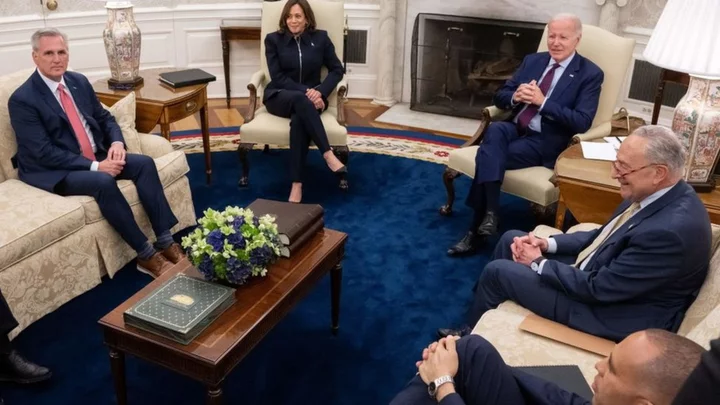
US debt ceiling: New negotiators aim to break deadlock
President Joe Biden has cut short a foreign trip as both sides race to strike a deal before 1 June.
1970-01-01 08:00
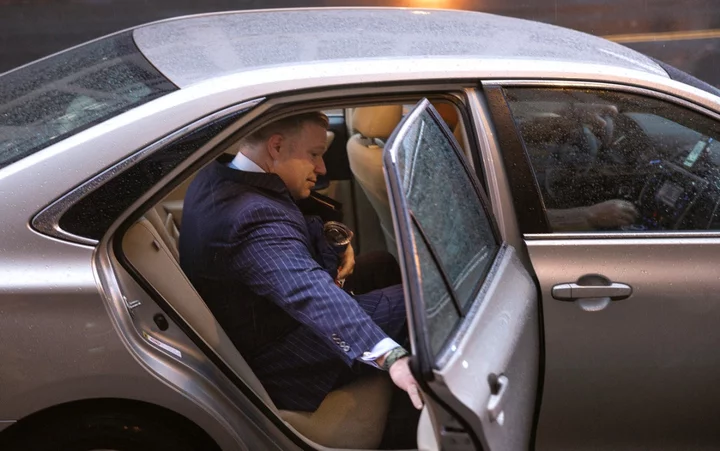
Trump lawyer exits legal team as Mar-a-Lago classified documents probe heats up
Former president Donald Trump’s attorney Timothy Parlatore is leaving the former president’s legal team, CNN reported on Wednesday. Mr Parlatore played a key role in the investigation into Mr Trump keeping classified documents at his private Mar-a-Lago estate, and Mr Parlatore even testified before the grand jury in the case. The departure comes as Special Counsel Jack Smith reaches the end of his investigation into Mr Trump’s possible mishandling of classified documents. “It’s been an incredible honor to serve and work through interesting legal issues. My departure was a personal choice and does not reflect upon the case, as I believe strongly the (Justice Department) team is engaging in misconduct to pursue an investigation of conduct that is not criminal,” Mr Palatore told CNN in a statement. Mr Parlatore also organised searches for additional classified documents at Trump Tower as well as other Trump properties, including a storage unit. He also testified before a grand jury in December when the Justice Department sought to hold Mr Trump in contempt for failing to hand over classified documents after he received a subpoena. “They repeatedly tried to ask me about my conversations with President Trump, which is totally outside the scope of what I was there for,” he said in March. Mr Parlatore also recently sent a letter to House Intelligence Committee Chairman Mike Turner that asked the Justice Department to step aside and instead let the intelligence community determine what happened with the documents. The departure comes as Mr Trump faces multiple investigations on the federal and local levels. Last month, he was arraigned in Manhattan for charges related to alleged hush money payments. The Fulton County, Georgia, district attorney is also investigating Mr Trump’s attempts to overturn the 2020 presidential election results in the Peach State. Similarly, along with the documents, Mr Smith is investigating Mr Trump’s attempts to overturn the 2020 presidential election results and his actions on January 6. Read More Trump news – live: John Durham’s report on Trump-Russia probe attacks FBI as Giuliani accused of sexual abuse DeSantis reacts to Trump implying Florida abortion ban is ‘too harsh’ as 2024 fight heats up
1970-01-01 08:00
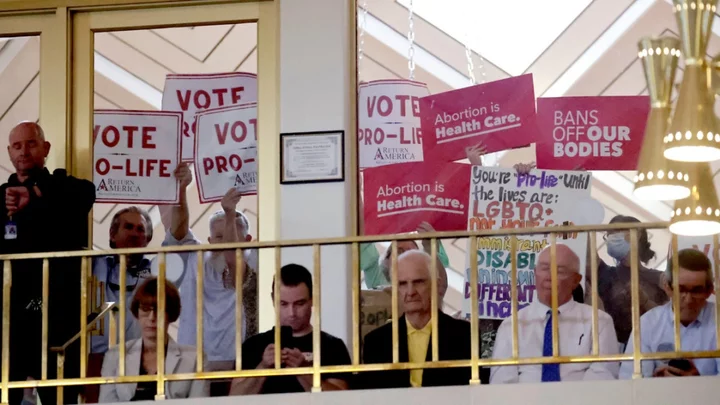
Key abortion debates this week in US courts and statehouses
Abortion opponents are trying again to implement restrictions in the latest round of court and legislative action on the divisive issue. This round of efforts centers on states that have considered bans before and a policy that's been bouncing around federal courts. Here are key things to know about the latest developments in the saga of how abortion policy will settle after the U.S. Supreme Court last year overturned Roe v. Wade and the nationwide right to abortion. PURPLE STATE POLICY Since the Dobbs ruling last year, tighter abortion restrictions have been enacted in most Republican-controlled states and protections of abortion access have gone into effect in most that are dominated by Democrats. But there hasn't been such a uniform story in the 11 states with divided government control. Virginia has kept its status quo, for instance, while Vermont has adopted a constitutional amendment to preserve abortion access and Louisiana and Kentucky have bans in place. Change came quickly in North Carolina in April when one state lawmaker flipped from Democrat to Republican, giving the GOP enough votes to override gubernatorial vetoes. Lawmakers promptly passed a ban that's less restrictive than most — allowing abortion for the first 12 weeks of pregnancy, which would be among the least restrictive of the new bans. Democratic Gov. Roy Cooper vetoed it. But lawmakers on Tuesday overrode that veto and the new law is set to take effect July 1. TRYING AGAIN ON BANS IN NEBRASKA, SOUTH CAROLINA Nebraska and South Carolina are both Republican-dominated states where GOP lawmakers have struggled to agree on the details of abortion bans. Both are considering bans this week, just weeks after earlier efforts narrowly fell short on procedural votes. And both have resurrected legislation that's less restrictive than versions that were rejected previously. In South Carolina, Republican lawmakers were divided on whether to ban abortion at all stages of pregnancy or only after cardiac activity can be detected — generally around six weeks, often before women know they're pregnant. A version of a less stringent ban is now under consideration. In Nebraska, lawmakers balked at a ban after six weeks. The unique unicameral legislature is now considering a ban on abortion at 12 weeks' gestation. It's been added to a bill that would also ban gender-affirming care for minors. RESTRICTION IN MONTANA In Montana, Gov. Greg Gianforte signed a ban Tuesday on dilation and evacuation abortions, which are normally performed in the second trimester of pregnancy. A legal challenge is expected. And it wouldn't be the first challenge on the policy in the state. A judge ruled last month that she would not block the ban preemptively, before it was signed into law. The state in 2021 adopted a broader ban on abortions after 20 weeks of pregnancy, but the state Supreme Court ruled that it will not enforce it pending a court challenge, leaving abortions by some means legal until viability, around the 24th week. COURT ARGUMENTS ON AN ABORTION PILL Most of the legal battles on abortion since the Supreme Court’s Dobbs decision in 2022 have centered on whether individual state constitutions protect the right to abortion. But one has implications nationally. An anti-abortion group sued seeking to rescind the U.S. Food and Drug Administration’s 2000 approval of mifepristone, one of two drugs used in combination in most medication-induced abortions in the U.S. A federal judge in Texas agreed. The New Orleans-based 5th U.S. Circuit Court of Appeals is hearing arguments Wednesday on the matter. In the meantime, the U.S. Supreme Court has said that mifepristone can remain on the market. It is already barred from being used in abortions, with some exceptions, in states with bans in place. An immediate response from the circuit court is unlikely. The case is expected to return to the nation’s top court eventually. The Texas-based case could be merged with one in Washington, where another federal judge ruled last month that mifepristone restrictions cannot be rolled back in a group of Democrat-led states that filed lawsuits. Read More Ukraine war’s heaviest fight rages in east - follow live Charity boss speaks out over ‘traumatic’ encounter with royal aide Arab foreign ministers welcome Syria's return to the Arab League ahead of Jeddah summit Hamas calls on Palestinians to confront Israeli victory parade in Jerusalem Tiny Amerindian village in Guyana fights gold mine in key court battle over indigenous land rights
1970-01-01 08:00
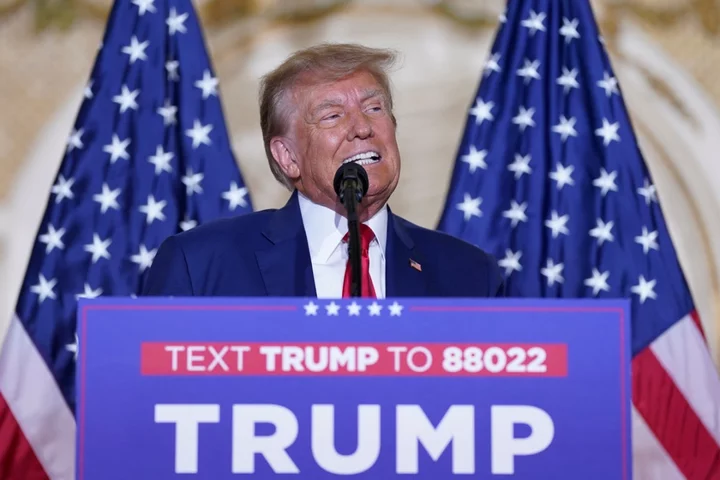
Trump takes credit for overturning of Roe v Wade while raising questions about DeSantis’ six-week ban
Former president Donald Trump is taking credit for the US Supreme Court overturning Roe v Wade last year by claiming he nominated the justices who did not agree with the 1973 precedent. On Tuesday night’s episode of Rob Schmitt Tonight on Newsmax, Mr Trump compared his action against abortion to Florida Governor Ron DeSantis’, saying he has done more for pro-life people. “First of all, I’m the one that got rid of Roe v. Wade and everybody said that was an impossible thing to do,” Mr Trump boasted. Mr DeSantis recently signed into law a six-week ban that prevents anyone from seeking an abortion after six weeks of gestation, with the exception of cases where ending a pregnancy would save the mother’s life. As of now, Florida allows abortions for pregnancies involving rape or incept until 15 weeks of gestation, so long as the mother can provide documentation such as a restraining order or police report. But despite Florida’s harsh move to restrict abortion access, Mr Trump believes he should be receiving more credit for the work he’s done. “What I’ve done is given the pro-life people, who are wonderful people and loving people, I’ve given them the power of negotiation. Because now they’re able to negotiate something that is going to be very important,” Mr Trump said. During his presidential term, Mr Trump nominated three Justices to the Supreme Court - Neil Gorsuch, Brett Kavanaugh and Amy Coney Barrett. All three Justices joined the majority opinion of Dobbs v Jackson last summer to help overturn Roe v Wade as well as Planned Parenthood v Casey. This returned the legality of abortions to each state individually. As of May 2023, 19 states have banned abortions either fully or restricted until a certain week of gestation, including Florida. “DeSantis, or Ron Desanctimonious as I call him, he came out with the six weeks — other people agree with and a lot of people don’t,” Mr Trump said. The former president used Mr DeSantis’ recent ban to highlight how unpopular he is with female voters — indicating the ban is too restrictive. “Ron, if you take a look, he’s losing women voters like crazy,” Mr Trump said before citing several news stories about Mr DeSantis’ unpopularity with women. The former president has been comparing himself positively to Mr DeSantis in the last few months as rumours are swirling that Mr DeSantis is preparing to announce his bid for Republican presidential candidate. “I don’t do it for the women, for the men, I do what’s right,” Mr Trump added. It is thought that Mr DeSantis could be a leading contender for Republicans, making him a possible threat to Mr Trump’s campaign. As of recently, any opportunity Mr Trump has to criticise Mr DeSantis, he takes it — as evidenced by the Newsmax interview. Mr Trump both credited himself with overturning Roe v Wade while asserting that Mr DeSantis was unpopular with women due to Florida’s six-week ban. Mr Trump has changed his opinion on abortion throughout his life. In the 1990s the former president claimed he was pro-choice but by 2015 he told reporters he was pro-life. In 2016, Mr Trump said he would have “preferred” if abortion were up to the States but accepted the federal law. After implementing the three Justices who overturned Roe v Wade last year, Mr Trump took credit for the decision. But since then, the former president has never made it clear at what point in gestation abortions should be illegal. Read More DeSantis reacts to Trump implying Florida abortion ban is ‘too harsh’ as 2024 fight heats up Abortion after 12 weeks banned in North Carolina after GOP lawmakers override governor’s veto Abortion pill case moves to appeals court, on track for Supreme Court Ivanka and Jared split over attending Trump 2024 launch – follow live Why was Donald Trump impeached twice during his first term? Four big lies Trump told during his 2024 presidential announcement
1970-01-01 08:00
